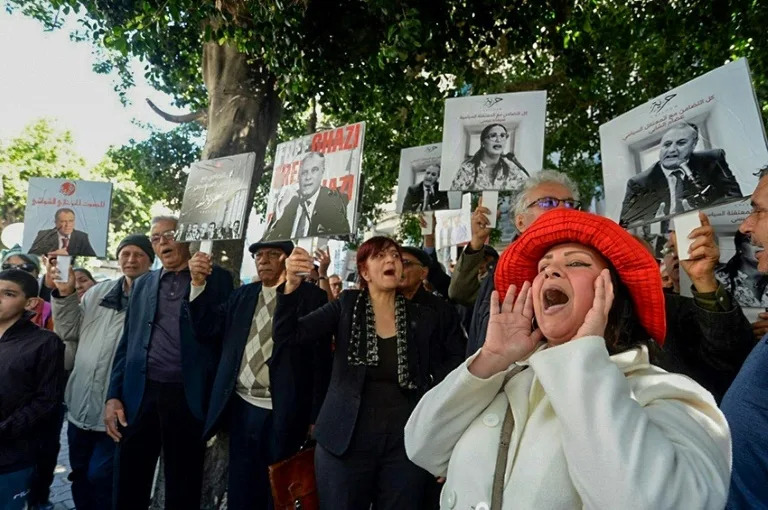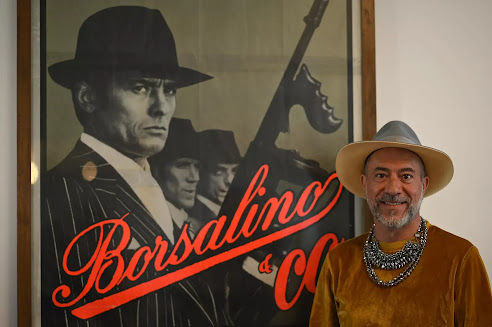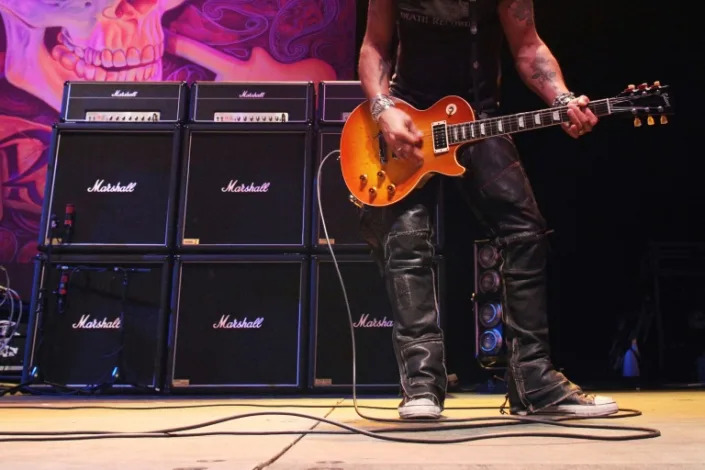Roma and Sinti continue to be subject to prejudice in various areas of public life in Germany. The Berlin-based Amaro Foro youth organization has documented incidents in the capital.

Andrea Grunau
DW
Over the past year, hundreds of thousands of refugees from Ukraine have arrived in Germany and most have received a friendly welcome. Some, however, have had to prove they are "real" refugees by showing their IDs in line for food handouts; others have been the target of racist insults. One family was blocked by security forces at the main train station in the capital Berlin, as its members made their way to a COVID test center. The guards tried to impose a blanket ban on them entering the building.
"Since the beginning of the Russian war of aggression, we have noticed that Roma who fled Ukraine are not identified as seeking protection, but as illegitimate refugees," said Violeta Balog, the head of DOSTA, a documentation center on antiziganism, which is also known as antigypsyism, at Berlin's Amaro Foro, a cross-cultural youth association of Roma and non-Roma. "War and crises strengthen anti-Roma sentiment," she added. Amaro Foro, according to the group's website, means "our city" in the Romanes language
Rise in anti-Roma incidents in Berlin
DOSTA says that Germany has a particular responsibilty because of Nazi crimes against Sinti and Roma in Europe: "The German extermination campaign also took place on the territory of Ukraine, the 'Holocaust by Bullets,' that is, mass shootings."
DOSTA has been documenting cases of racist discriminationagainst people who are Sinti and Roma, or perceived to be, in Berlin since 2014. It recorded 372 incidents in 2021 and 2022, more than ever since it started collecting the data, but thinks that there were probably a great number of unreported cases.

On the recommendation of the Independent Commission on Antiziganism set up by the German parliament, last year a nationwide Reporting and Information Center on Antiziganism (MIA) was established.
Doubts as to refugee status
Mehmet Daimagüler, the Germany's first commissioner for combatting discrimination against Roma and Sinti, confirmed that Roma from Ukraine had been discriminated against at all stages of their journey from Ukraine to Germany. In one case, German police and rail staff forced more than 30 people to get off a train because their refugee status was doubted.
"I find it intolerable that Roma, descendants of people who survived the Holocaust, some of whom were taken to the gas chambers on Reichsbahn trains, are now being discriminated against on Deutsche Bahn trains," Daimagüler told DW.
Meanwhile, he said, the chairperson of the Deutsche Bahn board and the chairman of the Central Council of German Sinti and Roma had discussed the matter, and Deutsche Bahn had committed itself to educating its employees about anti-Roma and Sinti discrimination.

Refugees from Moldova have also faced very negative experiences in Berlin, according to DOSTA. They are often depicted as Roma and "illegitimate refugees," said political scientist Aron Korozs, who added that in Moldova Roma communities hardly had any access to education and health care. He also said that seriously ill people and heavily pregnant women had been deported from Berlin.
Antiziganism in everyday life
Incidents reported include the case of a woman who went to the emergency room of a Berlin hospital because she felt poorly as a result of chemotherapy. She reportedly vomited on the premises and was thrown out by security guards who said to her: "You only come here to eat and drink anyway."
In another incident, a Romanian woman lifted a watermelon in a supermarket to see if it was ripe. Security personnel chased her away "because 'gypsies' always steal." The woman filed a complaint after the racial slur. Sinti and Roma were persecuted under the Nazis and between 250,000 and 500,000 are estimated to have been murdered. In concentration camps, they were often ascribed serial numbers prefaced by a Z for Zigeuner (the German word for "gypsy"), which were tatooed on their arms. Balog said the term was "insulting, racist, hurtful."
DOSTA has found that whether they are shopping, working or dealing with neighbors and landlords, Roma — and people who are thought to be Roma — experience discrimination in all areas of life.
Balog said that it was difficult for people to defend themselves because often their basic needs, including housing and work, were at stake. Many feared the consequences if they stood up against discrimination. Not without reason: One man who turned to Amaro Foro for advice after facing discrimination from his landlord had been given notice, she said.

Antiziganist prejudices and crimes
The 2022 Leipzig Authoritarianism Study found that many people in Germany tended to be hostile when asked about Sinti and Roma. Over half of those surveyed had agreed with the statement "I would have problems with Sinti and Roma hanging out in my area" in eastern Germany, while over a third had agreed with it in the country's west. There was even more agreement with the statement "Sinti and Roma are prone to crime."
Antiziganism has led to a rise in crime against Roma and Sinti in Germany. "In 2022, 145 antiziganist crimes were reported, including 12 violent crimes," the German government said in response to a question from the Left party parliamentary group. Daimagüler told DW that this was the highest figure since these crimes began being recorded in 2017 but probably only showed "a fraction of the reality."
'Discrimination should not be tolerated'
In another case, a Romanian mother who was looking for a kindergarten place for her daughter had been told on the phone that there were vacancies. When she showed up, she and her daughter were sent away and told there were no places. She said that a few days later, an acquaintance of hers "who is taken for white" had been granted a spot at the same kindergarten.

Balog said that finding a kindergarten place was not the only problem for Roma. She said that many children waited "forever" before being admitted to school. She saide that some school administrators rejected Moldovan children across the board because "they're going to be deported anyway."
She said that even when they did go to school, Roma and Sinti children often faced bullying from classmates and staff. A 2021 RomnoKher study conducted by the nationwide association of Roma and Sinti found that more than six in 10 experienced discrimination at school.
Balog said that racist bullying at school could have a strong impact on the education of children and limit their opportunities. She said that educational establishments had to be open to everybody and that all children should be taught together instead of being divided into seperate classes because of language barriers. She said that children should be given more support to learn German if necessary. Discrimination must not be tolerated, she said, adding there was a need for "independent complaints bodies with powers."
She also criticized the fact that history books often only mentioned the Nazi genocide of the Sinti and Roma in passing. "German Sinti in particular have been part of this society for more than 600 years," she argued, adding that it was unacceptable that "we still live in times of ignorance."
'Unemployment rates hardly differ'
The Berlin State Anti-Discrimination Act (LADG) entered into force in 2020. DOSTA says that progress has been made, but antiziganist incidents have still occurred, including on the part of federal agencies, such as job centers as well as social welfare offices, to which the LADG does not apply.

In 2019, Balog said that DOSTA had learned of a Federal Employment Agency document that suspected Romanian and Bulgarian nationals of "organized benefit abuse," through a leak.
She said that the document had since been amended but that in practice benefit payments were often delayed and applicants were frequently asked for "irrelevant" information and documents. DOSTA points out that employment rates for people from Romania and Bulgaria hardly differed from those for the German population in 2021, in order to refute accusations of "poverty immigration."
'Do not lump people together'
Another case is that of a social worker telling a colleague not to pay too much attention to a young woman in a shared residence because she had a Roma background, would soon drop out of school and get married, as that was part of the "culture." Horrified, the colleague replied that she too was Roma, had studied and did not have children. To which the social worker had replied: "Oh, you are Roma? You don't look it."

Aron Korozs said that this was a prime example of how antiziganistic images partly shaped the social work sector, in which a homogeneous Roma culture was that did not exist was assumed. He said that social workers should not lump people together but seek individual solutions.
Amaro Foro spokeswoman Andrea Wierich told DW she was worried about the way Roma and Sinti were depicted in the media. She said there had been some improvement but antiziganist stereotypes had not disappeared. "A beggar is immediately labeled as being Roma, a doctor is not," she said, adding that images contributed to stigmatization. "Roma are often not portrayed as individuals, but as a foreign-looking mass, seen from behind, often wearing long colorful skirts, and with dark hair."
She said that she hoped it would eventually become normal to see Roma and Sinti individuals in the media, "with a Rom presenting the weather in the daily news program, and not only seen as an activist on World Roma Day."
This article was originally written in German.





















